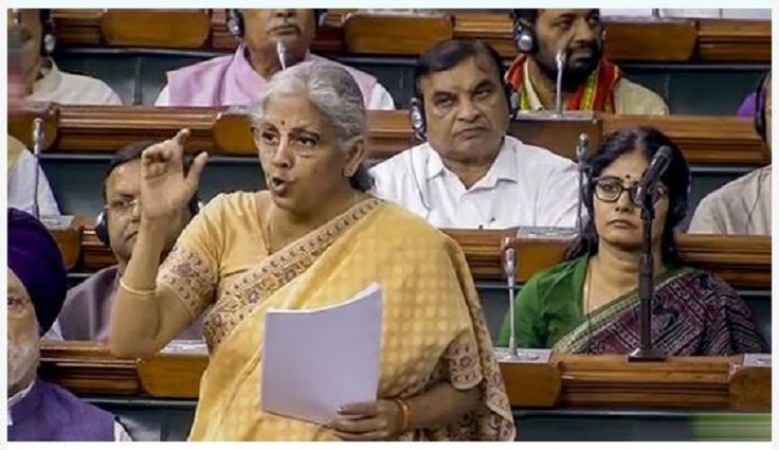
NEW DELHI: In the midst of discussions surrounding the No Confidence Motion, Nirmala Sitharaman, the Union Finance Minister, underscored a remarkable shift in India's economic landscape. She highlighted the fact that as recently as 2013, India had been classified by Morgan Stanley as one of the world's five fragile economies. However, she drew attention to the current scenario, revealing that Morgan Stanley has upgraded India's economic rating, positioning it in a significantly improved stance. She underscored that within a mere span of 9 years, India's economy has surged, achieving substantial growth, largely attributed to the government's policies, even amidst the challenges posed by the COVID-19 pandemic.
Sitharaman pointed out that at present, India proudly holds the title of the fastest-growing global economy. She indicated that India stands in a unique position, brimming with optimism and confidence about its future growth trajectory. During her address to the Lok Sabha, she noted that the global economy had registered a modest growth of just over 3 percent in 2022, with the World Bank projecting a decline to 2.1 percent for 2023.
Further elaborating, she conveyed that the real GDP growth for the fiscal year 2022-23 had reached an impressive 7.2 percent and was poised to expand by an estimated 6.5 percent in the fiscal year 2023-24. These estimations, she emphasized, were in line with projections from various international organizations, including the Reserve Bank of India's (RBI) own forecast.
Sitharaman attributed the rapid economic recovery post-COVID to Prime Minister Modi's strategic economic policies, citing initiatives like 'Sabka Sath, Sabka Vikas, Sabka Vishwas, and Vikas Prayaas.' She lauded these efforts for placing India at the forefront of post-pandemic recovery.
In her speech to the Lok Sabha, Sitharaman also remarked on the unique unity demonstrated by the alliance partners, noting the challenge of discerning whether they were engaged in internal conflicts or standing united.
She went on to describe the Direct Benefit Transfer (DBT) story as a global model. While acknowledging the UPA's implementation of DBT, she highlighted that a mere Rs. 7,367 crores were transferred in the fiscal year 2013-14. This figure, she contrasted, had grown fivefold by 2014-15. She further revealed that in the most recent financial year, an impressive total of Rs. 7.16 lakh crores had been successfully transferred through the DBT system.
The Reserve Bank of India (RBI), during its bi-monthly MPC meeting, opted to maintain the key interest rate unchanged for the third consecutive session. The benchmark repurchase rate was retained at 6.50%. The repo rate, signifying the interest rate at which RBI extends loans to other banks, remained constant. RBI Governor Shaktikanta Das elucidated that the adjustment in the incremental Cash Reserve Ratio (CRR) aims to extract slightly over Rs. 1 lakh crore of surplus liquidity from the system.
RBI MPC Meeting August 2023 - Full Speech by Governor Shaktikanta Das
LIVE Updates RBI MPC Meeting: Repo Rate Held Steady at 6.50%
RBI's Monetary: Speculating on Shaktikanta Das' Impending Call and Expert Insights